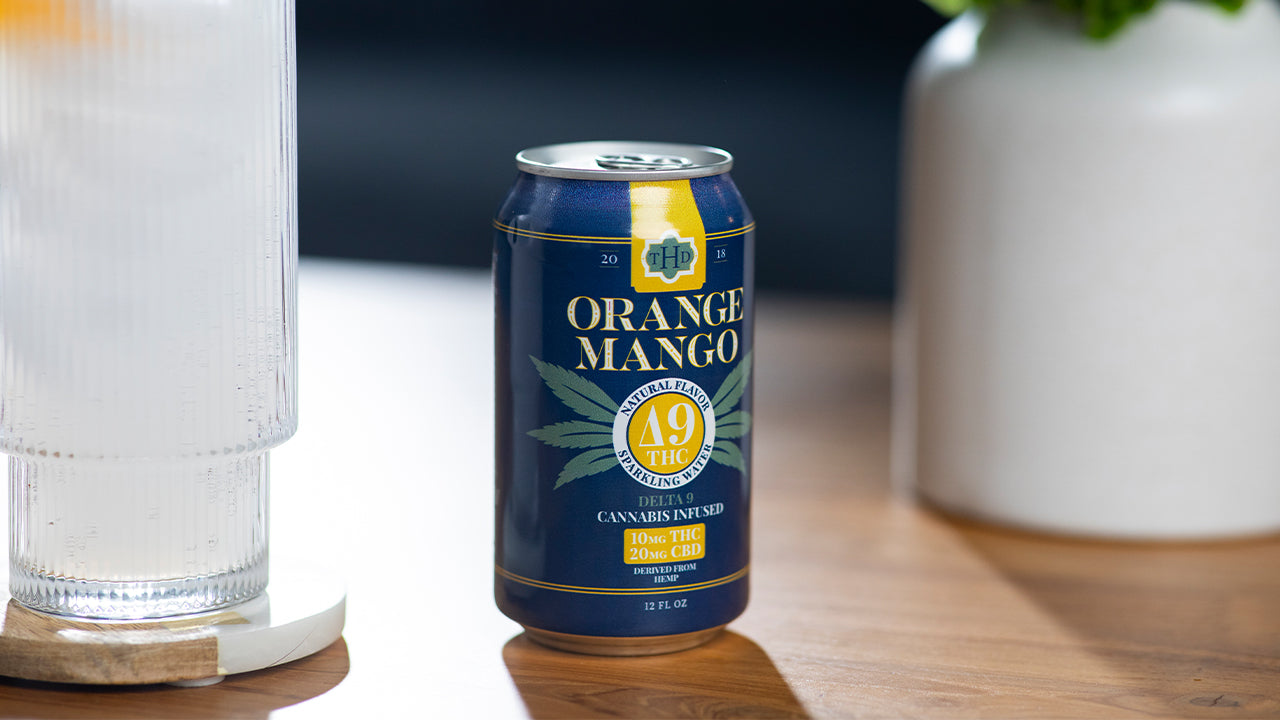The world of cannabis is much more complex than most people think. What was once seen purely as a recreational drug is now being recognized for its wide range of wellness applications and therapeutic potential. As research expands and stigma fades, cannabis is becoming increasingly intertwined with industries like food, beverage, and health supplements. With that growing interest, two compounds (or cannabinoids) continue to steal the spotlight: CBD (cannabidiol) and Delta-9 THC (tetrahydrocannabinol). While both derive from hemp, a cannabis plant, they offer distinct effects, benefits, and considerations before use. Whether you’re looking to manage stress, support sleep, or are simply curious about their wellness potential, understanding the science behind each compound can help you decide which one is the right fit.

What’s the Difference?
There are countless things that CBD and THC have in common: both are naturally occurring compounds found in cannabis plants, both offer potential medicinal benefits, and both can be consumed in a variety of ways. While their chemical structures are remarkably similar, the way they interact with the body is quite different.
The most significant difference is that Delta-9 THC is a psychoactive compound, meaning it alters brain function and produces the well-known “high” associated with marijuana. It does this by binding directly to the body’s CB1 receptors, which are primarily located in the brain and central nervous system. This interaction can influence mood, movement, perception, body temperature, and brain function.
CBD, on the other hand, does not produce a euphoric or intoxicating effect, even when taken in high doses. It interacts with the body’s endocannabinoid system, a complex cell-signaling network that helps regulate functions like mood, sleep, appetite, and immune response. Rather than binding strongly to CB1 receptors (which are associated with the psychoactive effects of THC), CBD influences other pathways, including serotonin receptors that play a role in mood, anxiety, and overall well-being.
Are CBD and Delta-9 Legal?
Cannabis laws in the United States are constantly evolving. While many states have legalized cannabis for medical and recreational use, it remains illegal at the federal level. Each state has its own approach to defining and regulating the legal use, prescription, and sale of cannabis, with variations in how laws are applied.
In 2018, the Farm Bill removed hemp from the legal definition of marijuana in the Controlled Substances Act. This move made hemp-derived CBD products containing .03% or less of THC federally legal. The bill effectively opened the door to the legalization of Delta-9 as long as it derives from hemp, which is another variation of the Cannabis sativa plant. As of April 2025, CBD is legal with conditions in 48 states*. Delta-9 is fully legal for recreational use in 44 states and the District of Columbia*. Additionally, 23 states have legalized Delta-9 for medicinal purposes.

What are the Benefits?
Both CBD and Delta-9 THC have demonstrated significant therapeutic potential in addressing a variety of health conditions, each offering distinct benefits for physical and mental wellness. CBD is widely recognized for its anti-inflammatory properties and is often used to help manage chronic conditions such as inflammatory bowel disease, seizures, and migraines. It has also been studied for its potential to ease symptoms of depression, psychosis, and other mental health disorders, making it an appealing option for those seeking natural alternatives to traditional treatments. Additionally, CBD is valued for its ability to reduce pain and anxiety, promoting relaxation and stress relief without the psychoactive effects associated with THC.
Medically, THC is widely recognized for its ability to target specific conditions. For example, it can help lower eye pressure in individuals with glaucoma. It is also commonly prescribed for muscle spasticity associated with multiple sclerosis and other neurological conditions. THC has proven effective in stimulating appetite, making it especially beneficial for patients undergoing chemotherapy or experiencing significant weight loss. Additionally, its sedative properties have provided relief for those struggling with insomnia or difficulty falling asleep.
Both cannabinoids share therapeutic potential for common issues like pain, anxiety, and nausea. In fact, CBD and Delta-9 are frequently paired together to enhance their effects. When used together, CBD can help balance out the intensity of THC, reducing potential side effects like anxiety or mental fog. This dynamic, known as the entourage effect, allows both cannabinoids to work in harmony, offering a more effective and well-rounded experience.

How to Use CBD and Delta-9
Most people are familiar with smoking or vaping as the traditional way to engage with cannabinoids like Delta-9 THC and CBD. While this method offers fast-acting effects, it’s not for everyone, especially if you have respiratory concerns or just prefer a gentler approach.
The good news? There are plenty of smoke-free options. Oils, tinctures, and edibles or gummies make it easy to work CBD or THC into your daily routine, no lighter required. Some people take CBD on its own to support relaxation or focus. Others enjoy pairing it with Delta-9 THC for a more balanced, mellow experience.
At The Hemp Division, we craft our products to deliver a cool, calm, and delicious experience. Whether you're sipping a wellness tea, reaching for a gummy, or trying one of our refreshing drinks, you’ll find honest, potent blends made with care. And now, with the addition of Delta-9 THC, there’s even more to explore in our lineup.



